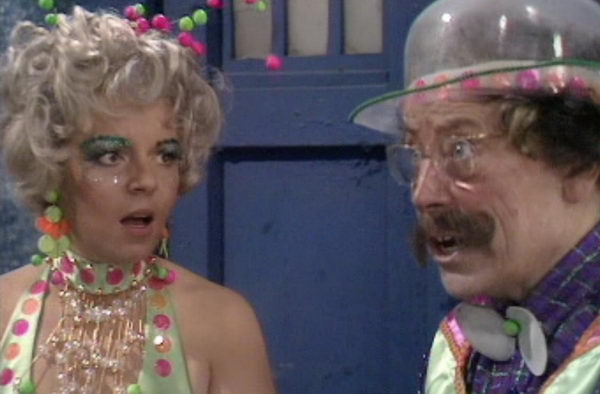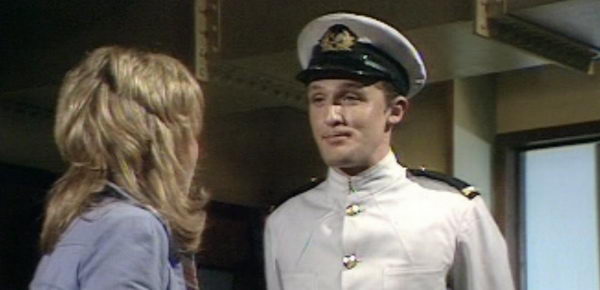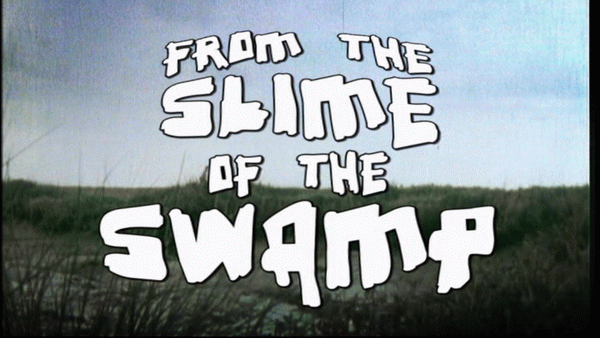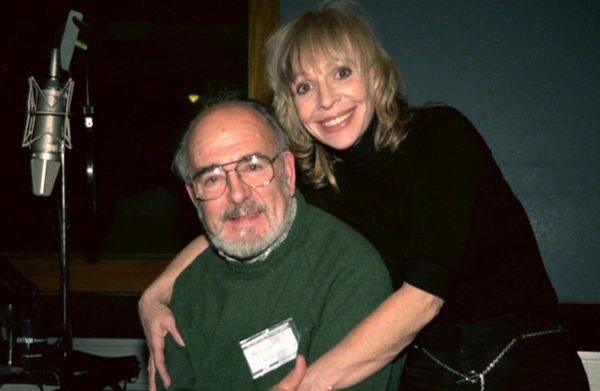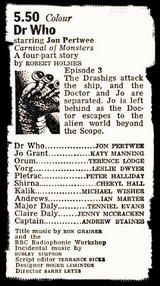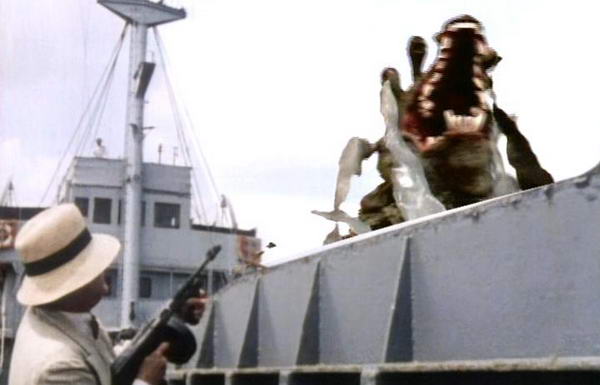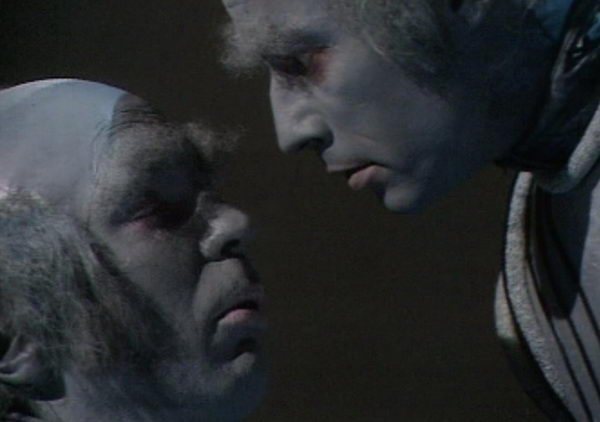|
| |
|
STORY PLACEMENT This story takes place BETWEEN THE BIG FINISH AUDIO BOOK "THE MISTS OF TIME" AND THE NOVEL "THE SUNS OF CARESH."
PRODUCTION CODE PPP
WRITTEN BY ROBERT HOLMES
DIRECTED BY BARRY LETTS
RATINGS 9.2 MILLION
WORKING TITLES THE LABYRINTH & PEEP SHOW
RECOMMENDED PURCHASE 'REVISITATIONS 2' DVD BOX SET (BBCDVD2956) RELEASED IN MARCH 2011.
BLURB FREED FROM HIS EXILE ON EARTH, THE DOCTOR TAKES JO ON A TEST FLIGHT IN THE TARDIS, LANDING ABOARD THE SS BERNICE, A CARGO SHIP CROSSING THE INDIAN OCEAN IN 1926.
AS EVENTS UNFOLD, IT SEEMS THAT THEIR FATE LIES IN THE HANDS OF A TRAVELLING SHOWMAN NAMED VORG, WHO HAS JUST ARRIVED ON INTER MINOR WITH AN INTER- GALACTIC PEEPSHOW CALLED THE MINISCOPE... |
|
|
Carnival of Monsters 27TH JANUARY 1973 - 17TH FEBRUARY 1973 (4 EPISODES)
The Revisitations 2 box set’s second offering is a two-disc edition of Carnival of Monsters, one of the most popular serials of Jon Pertwee’s tenure, and certainly one of the most colourful.
The original 2002 DVD release contained the serial’s four episodes as they originally aired, together with a collection of deleted and extended scenes. Having been reared on the 1995 VHS edition of the story, which featured the extended 71” edit of the second episode, I was never really happy with the disc - I felt that it would have been better to have the four episodes as they originally aired, together with the 71” edit as an optional feature, and that’s exactly what this special edition offers. Should I be feeling puritanical, I can watch the four episodes just as they aired in 1973, bald-cap slip and all; otherwise, I can fritter away a further five minutes enjoying Carnival’s crazy colours and the strange sounds of Paddy Kingsland’s “Delaware” theme tune arrangement.
Another gripe that I had with the original Carnival DVD was that its special features were, for the most part, throwaway. There was a short film in which Barry Letts demonstrated how to use chroma key (also known as “colour separation overlay”, or “CSO”) to his underlings; a trailer for the famous 1981 repeat season, of which Carnival of Monsters formed a part; Letts’ amended ending to the final episode (as aired in 1981 and included on the VHS); a couple of minutes’ studio footage; and another instalment of TARDIS-Cam. Naturally this release preserves all of these minor titbits, but it complements them with stylish, substantive features.
The flagship feature, entitled Destroy All Monsters!, demonstrates just how far Doctor Who DVDs have come in the last nine years. Not only does it document the making of the story in just the right level of detail, but it presents the same through a highly-stylised, and thoroughly redolent, monster-movie-mash disguise. The result is absolutely glorious, finally doing this well-liked serial justice.
Above: Destroy All Monsters!
On Target with Ian Marter is ostensibly an instalment in the ongoing series looking at the Target novelisations’ writers, but in fact it’s a little more than that. This charming, and often quite touching, programme explores the roles that Marter played in Doctor Who, be they as a writer, a performer, or just as a good old-fashioned friend. The balance between man and work is delicately weighted as Lis Sladen fights back tears recalling moments in her private life, Tom Baker wistfully recalls fun-filled co-writing ventures, and Gary Russell laments the premature loss of an author who had the potential to be one of the Wilderness Years’ most exciting novelists.
Above: Katy Manning and the late Barry Letts provided the original commentary
Of course, the main feature looks just as polished on both the 2002 and 2011 releases, the Restoration Team’s meticulous clean-up having put paid to any lingering blemishes, allowing the full colour of the adventure to shine through. The episodes themselves can be viewed as intended, or with one of two commentary tracks playing over the soundtrack. The first is from the original release, recorded over a decade ago, and features both Katy Manning (Jo) and producer and director Barry Letts, whereas the new version, recorded just last year, sees Peter Halliday (Plectrac); Cheryl Hall (Shirna); Jenny McCracken (Claire Daley); and sound effects whiz Brian Hodgson recall their work on the production. Inevitably I favour the former, not just because Manning and Letts have more to say that is of interest, but because they deliver it with such fondness and flavour – especially the anecdote that paints Jon Pertwee as a brazen tea-leaf! That’s not to suggest that the new 2010 commentary is not worthwhile, however, because it is. Hall in particular is very interesting to listen to - she clearly loved the gig - and both Halliday and Hodgson have more than just this one serial to fuel their musings.
Arguably Carnival of Monsters’ strongest element is the concept driving it. Holmes’s “Miniscope” - an intergalactic peepshow starring unsuspecting, miniaturised monsters such as Cybermen, Ogrons and the aforementioned Drashigs – is fantastic fodder for the series, and even though Dicks’ tinkering with the story structure gave the game away much earlier than I feel would have been ideal, the concept remains as strong today as it did in 1971 – a statement borne out by the success of last year’s Doctor Who Live show, which featured Vorg’s son - Vorgenson (!) - operating a similar device.
For me though, what makes this serial such an enduring joy are the performances. Michael Wisher’s Kalik is deliciously dry throughout; the perfect foil to Leslie Dwyer and Cheryl Hall’s outrageous Vorg / Shirna double-act – at least, until Pertwee’s unflappable Doctor arrives on the scene, fresh from a boxing match with Ian Marter’s Lieutenant Andrews. Even Katy Manning gets to speak in chicken - what more could you want for your money?
Overall then, the Carnival of Monsters revisitation is another
triumphant one. Some might say that there’s no point “upgrading” to the
special edition just to gain some further bonus material, but they’re
forgetting that the lovingly-crafted features that adorn modern Doctor
Who DVDs often serve to enhance one’s appreciation of the main feature
itself, imbuing forty year-old stories with new life. You can’t put a
price on that.
|
|
|
Copyright © E.G. Wolverson 2006, 2011
E.G. Wolverson has asserted his right under the Copyright, Designs and Patents Act, 1988 to be identified as the author of this work. |
|
|
When is now? Whilst in 1926, Jo proclaims “we’ve slipped back about forty years in time”. If Jo’s arithmetic is sound, then the Pertwee-era UNIT stories are set in the 1960s. It stands to reason then that it isn’t. Either Jo’s no good with numbers (a wholly plausible theory), or she and the Doctor have just been in the throes of a hitherto unknown 1960s adventure.
Please see the UNIT Dating Dossier for further information.
|
|
|
Unless otherwise stated, all images on this site are copyrighted to the BBC and are used solely for promotional purposes. ‘Doctor Who’ is copyright © by the BBC. No copyright infringement is intended. |
|

.jpg)
.jpg)
.jpg)
